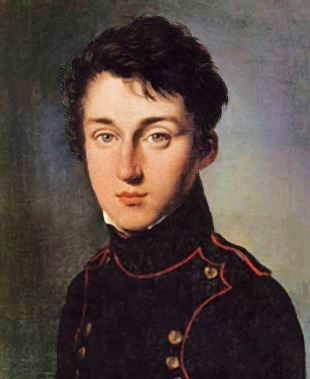Growth history
Human took risks to use fire, in order to protect himself from animals. Then, livestock farming and irrigation led to a new growth. People gave their life to acquire goods. They became slaves to acquire. Slaves' debts were then recorded, creating scriptural money.
Chinese, then Greeks, created the currency, Chinese' notes, then Greeks' coins. Chinese used a hidden tree for notes. Greeks used metals for that. Chinese currency was mainly valued because it was able to acquire with it silk in Europe. Russia was interested about other Chinese goods.
Chinese emperor applied his seal to banknotes, validating Chinese banknotes. Thus, Chinese finance was not created, also thanks to Confucianism. Chinese created the first steam engines. But then they were attacked by the Huns.
Nicolas De Cuse, who has grown Infinity notion, then the astronomer and technician Kepler had both revolutionized European science. Kepler had found some planets' paths. Then he spoke about harmony, harmony meaning mathematics. Kepler thought also that space was organized, so it needed a soul or souls. Mathematics harmony were used by Jean Sébastien Bach. He created the Well-Tempered keyboard. Later Leibniz and Pascal discovered him.
Under Louis XIV, Colbert wanted to restore cathedrals' movement, protecting France from British Empire. He decided to destroy the Fouquet traffic, to protect French manufactures from the English imports. This led to create French industries' future. But Colbert decided to export only luxury. Then the other factories became trusts in England to get rich. A trust is an delegated managed lead by a paid employee. This management dates back to Crusades, when the knight left to war, delegating his owns to an employee.
Also under Louis XIV, Denis Papin and Leibniz created coal's economy, later allowing the train and the steamer. Leibniz improved the infinity's concept of De Cuse, to speak about growth, through labour economics.
Lazare and Sadi Carnot created thermodynamics, under Napoleon, to later create pistons and the heat engine, much more ecological. The heat engine allowed great works. This science was hidden for 40 years, discovered and censored for a part by Kelvin.
In the United States, a public productive currency was created, constitutionally linked to a public National Bank. Hamilton indicated that this bank would turn debt into credit. That happened.
So, Napoleon created the France's Private Bank, so financial bank. He was used to make war. But Lazare Carnot had created Polytechnic, MINES and the most colbertist schools known as CNAM. Polytechnic created thinkers going against Napoleon. CNAM made it possible, among other things, to investigate French society, as a Colbert should have done.
On the nineteenth century, we discovered that energy was created by Labor. So we defined work as energy. Leibniz's labor saving concept was thus allowed greatly with a more dense energy. Henry Charles Carey then defined physical economy's leading words, words defined in this book.
Henry Charles Carey was read in many countries. Carey allowed the worldwide train's growth. He was exchanging with Friedrich List, who allowed Bismarck's productive economy. Meidji ERA in Japan was also strongly influenced by Carey.
French finance was very interested to create again a Colbert system spread across Europe. The young Eiffel was financed to promote French finance to show colbertism again, realizing that it was less valued face to Elisabeth's finance, therefore it also benefits from the productive currency‘s restore.
Germany had, however, understood Carey's creative and productive reason to create a Nation-State. The Colbert system allows being competitive itself with the first system created. So wars have no interest with this Nation-States’ system. The growth of this system are mostly through private monetary recessions to create industries, knowing that the Elisabeth’s system can do that also. These recessions can then benefit to Colbert system through a public currency that grows industries, even if this system splits. The French Colbert system should be helped purging finance that took place only once in France.
Jean-Charles Coovi-Gomèz, a student of Cheikh Anta Diop, says that after the law on secularism, France had to enforce the individual right as soon as possible, through infrastructures and laws. There was moral’s manipulation and a trading system, more or less moral, due to French system. Also we could gainsay using Colbert’s laws, even if they were not respected. So Mr Coovi shows that this system allowed early twentieth the strict respect of individual’s rights, including that of the american’s creative reason necessary for industries. Slavery was therefore necessarily prohibited to respect this French system, system financing or requesting financing to this respect, with obviously news used by anyone. France is the most interested to finance and respect. France is a target country for and against finance.
Thus, Eiffel allowed tests to create better-made planes than German ones. He was probably criticized to not invest in planes during the first war, an absurd war by the way.
The Colbert systems were for a long time the only private systems that are interested to finance industries during a crisis’s period. The war pays off mainly monetarily, rarity driving up prices.
Franklin Roosevelt took advantage of Carey's last schools to clean up the banks through a Glass-Steagall Act, consisting to split deposits, that is, taxpayers' money, from speculation, that is, financial money. George Boris wrote articles about Roosevelt. Roosevelt did not read Keynes, but Carey and Hamilton.
We discovered nuclear power. This dense energy allowed a global growth. Franklin Roosevelt wanted to grow Africa, during the war. Marshall plan, which was a monetary plan, was financial and was used unto Europe.
Georges Boris taught Léon Blum, Pierre Mendès-France and Charles De Gaulle. Charles de Gaulle and the communists split banks into three parts, that is to say, separated the taxpayers ' deposits from the loans, therefore debts, from speculation too. French economists are frightened that loans do not allow Roosevelt's banking splitting.
My Notes
Write and search about Colbert and Denis Papin.
|
Sadi Carnot, here, and his father Lazare are not enough known in France.
|




